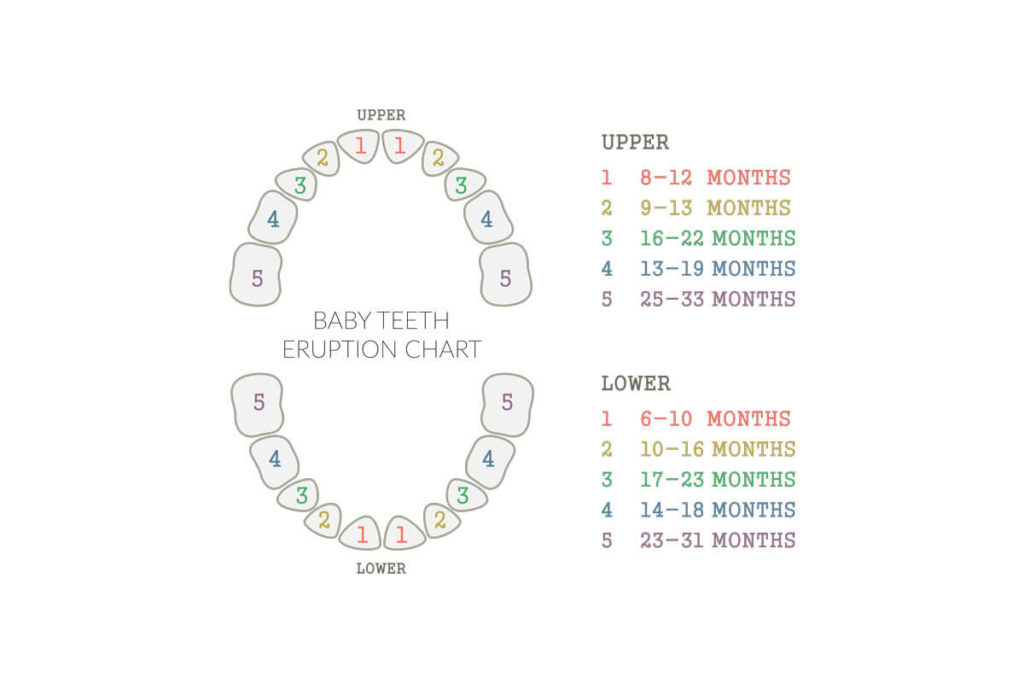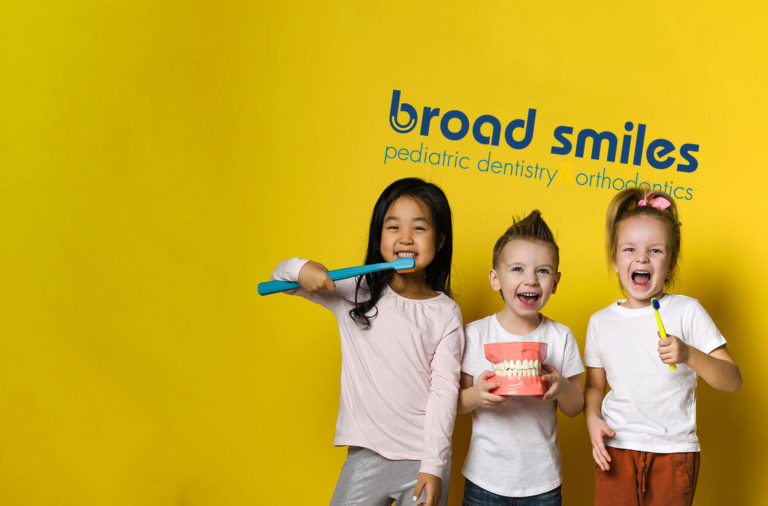Baby Teeth
Baby teeth are critical to your child's long-term oral health. They help children eat, speak, and keep their jaw aligned by providing space for when their permanent teeth come in.
When do baby teeth come in?
All 20 of a baby’s first teeth are already there when they’re born. Around 6 months, the first teeth (generally in the lower front) come through the gums.
The rest of your child’s baby teeth will come in slowly, with most of them showing up by age 3. Most kids have 10 top teeth and 10 bottom teeth at this age. Here is a picture that shows when most children’s first teeth come in.
How can I stop the pain from teething?
When a baby’s first teeth come in, they often hurt in certain places. It can help to rub their gums gently with a clean finger, a cold spoon, or a wet gauze pad. Your child may also feel better if they chew on a clean teether. For your baby’s safety, choose one made of solid rubber. Avoid rings with liquid in them or plastic teethers with sharp ends or that could break.
If your child has their first tooth or its nearing their first birthday, they should have their first visit to the dentist. Our experienced team of pediatric dental professionals would love to see your child for their first visit! Learn more about first visits for children and access new patient forms using the link below.

-
What are common teething symptoms?
Every child is different, as is their responses when they start teething. Below are some common symptoms you’ll notice if your baby is already teething or is likely start soon:
- swollen gums
- increased irritability and crying
- increased drooling
- less desire to eat solid foods
- biting and chewing
- bringing their hands to their mouth
- cheek rubbing and ear pulling
- disturbed sleep
Symptoms that are not associated with teething:
- fever (higher than 101 F)
- cough and congestion
- diarrhea
- vomiting
If your child is experiencing any of the above symptoms, they should see their pediatrician.
-
What are dentist-recommend baby teething remedies?
- Gently massage your child’s gums with a clean finger, applying light pressure to the gumline.
- Use a cold—not frozen—rubber teething ring or necklace. Avoid liquid filled teething rings or plastic objects that could break.
- Feed your child soft and cold foods, like yogurt or applesauce.
- Keep their face dry. Extra drooling is a common side-effect of teething, keeping your child’s face dry helps reduce irritation and rash on their face.
Do NOT use topical numbing gels containing benzocaine or lidocaine if your child is under the age of 2.
In 2018, the FDA issued a safety announcement stating: “The U.S. Food and Drug Administration (FDA) is warning that over-the-counter (OTC) oral drug products containing benzocaine should not be used to treat infants and children younger than 2 years. These products carry serious risks and provide little to no benefits for treating oral pain, including sore gums in infants due to teething.”
-
When should I start brushing my child's teeth?
Parents commonly wonder when to start brushing baby teeth. We recommend that you start brushing their baby teeth as soon as their first tooth comes in. Brush their teeth twice a day, using a small amount of toothpaste—approximately the size of a grain of rice. It is important to keep baby teeth cavity free. The bacteria that causes cavities in baby teeth stay in the mouth and can cause cavities in permanent teeth.
Just because baby teeth will eventually fall out, doesn’t mean that they’re not important. Not only do baby teeth help kids eat and speak, they also hold space in the jawline where permanent teeth will come in.
You can help care for your child’s mouth before their teeth come in by wiping your baby’s gums after each feeding and before bedtime, and avoiding cleaning pacifiers with your mouth.
A Kid-Friendly Dental Experience
We specialize in providing first-class dental care to children of all ages. What’s more, we are parents too! Therefore, we understand the busy lives of families and have created an experience to make your dental visits simpler. Learn more about our services or schedule an appointment today.

